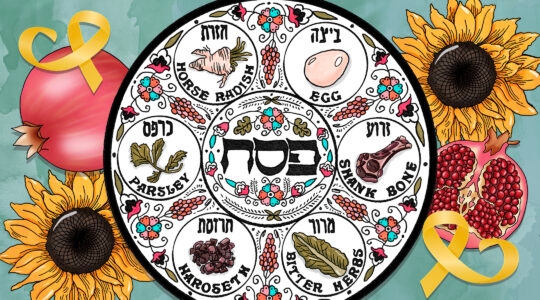JERUSALEM (JTA) — When she decided to split up from her husband, she went before an Orthodox rabbinical court and, after two perfunctory hearings and little discussion, received a religious writ of divorce.
It was only months later that the woman learned that the court had flagged her as an adulteress and placed her on a little-known list that, in accordance with biblical law, prohibited her from remarrying her ex-husband or her alleged paramour.
The allegation, which the woman declined to address directly, had never been raised during court proceedings. She only learned of it from a clause in the divorce papers she received in the mail.
“They accused me of adultery without any basis for it,” the woman, who asked that her name be withheld, told JTA. “I was in shock. I didn’t know where it came from.”
The woman, who has petitioned the Supreme Court to have her name removed from the list, is one of more than 5,000 Israelis included on a list of people restricted from marrying based on prohibitions in traditional Jewish law.
The list includes children of mothers with non-Orthodox conversions and those who fall into the Jewish legal category known as mamzer, defined as the offspring of certain forbidden sexual relationships, including children of married women who conceive extramaritally and their descendants.
Israel’s religious courts, which regulate the state’s Jewish marriages according to Orthodox legal standards, say the list is necessary to ensure marriages are kosher. But a state comptroller’s report from last year says the courts added names to the list illegally.
The court “exceeded the limits of its authority,” the report said, by adding people to the list without first giving them a hearing. The practice, according to the report, contravened Israel’s Basic Law: Human Dignity and Liberty, which provides for a right to privacy and intimacy, as well as what the report called “natural laws of justice.”
“The state should not be in the business of blacklisting the children of mamzerim,” said Susan Weiss, the founder of the Center for Women’s Justice, a public interest law group that plans to petition the Supreme Court to eliminate the list. “All this bureaucracy that’s been developed and nurtured around the issue should be eliminated.”
The notion of a mamzer — a biblical term often translated as “bastard” — is a controversial one in Jewish law, which allows mamzers to marry only each other. In the past, leading rabbis made efforts to find legal loopholes that would avoid branding someone a mamzer and thereby restrict their marriage options. Enforcing those restrictions in modern Israel makes it exceedingly difficult for someone branded a mamzer by the courts to ever be legally married.
Maayan Arviv, a spokeswoman for the religious courts, told JTA in an email that names typically enter the list after rabbinical courts adjudicate personal status questions necessary to reach a verdict in a related case. A higher court then reviews the decision.
Even without a formal register, religious courts would decline to allow marriage between a mamzer and another Jew. But without the list, Arviv wrote, “the marriage registrar could not exercise its authority regarding eligibility to marry.”
Arviv said the courts understand that mamzer is a taboo in the Orthodox community and that the need for discretion is paramount. The list is not publicized, she said, because “the rabbinical courts aren’t interested in people knowing what happens in other people’s backyards or inner rooms.”
Arviv declined to comment on the specifics of the divorced woman’s case because it is under review by the Supreme Court.
Batya Kahana Dror, who advocates for Jewish women seeking divorce, said that in an earlier era, rabbis rarely classified people as mamzers because details of a person’s origins were typically conveyed by word of mouth and were harder to confirm.
“There have been mamzerim throughout history, but no one knew,” Dror said. “But now, the way we save information leads us to the present situation.”
Others say the whole concept of mamzer is damaging and rabbis should find ways to eliminate it.
“The issue won’t be solved until the community frees itself from the idea that we must exclude mamzerim,” said Rivkah Lubitch, a litigator in the rabbinical court system and a Center for Women’s Justice board member. “It’s hard to say I’m a religious person and support a society that hurts people like this.”
Beyond the headaches of her legal battle to clear her name, the divorced woman said that being on the list hasn’t made her life harder. The courts are prohibiting her from marrying only two people, neither of whom she wants to wed. But she is fighting the decision on principle.
“An adulteress in my eyes is not an honest person,” she said. “It’s one of the Ten Commandments. How dare they do that?”





